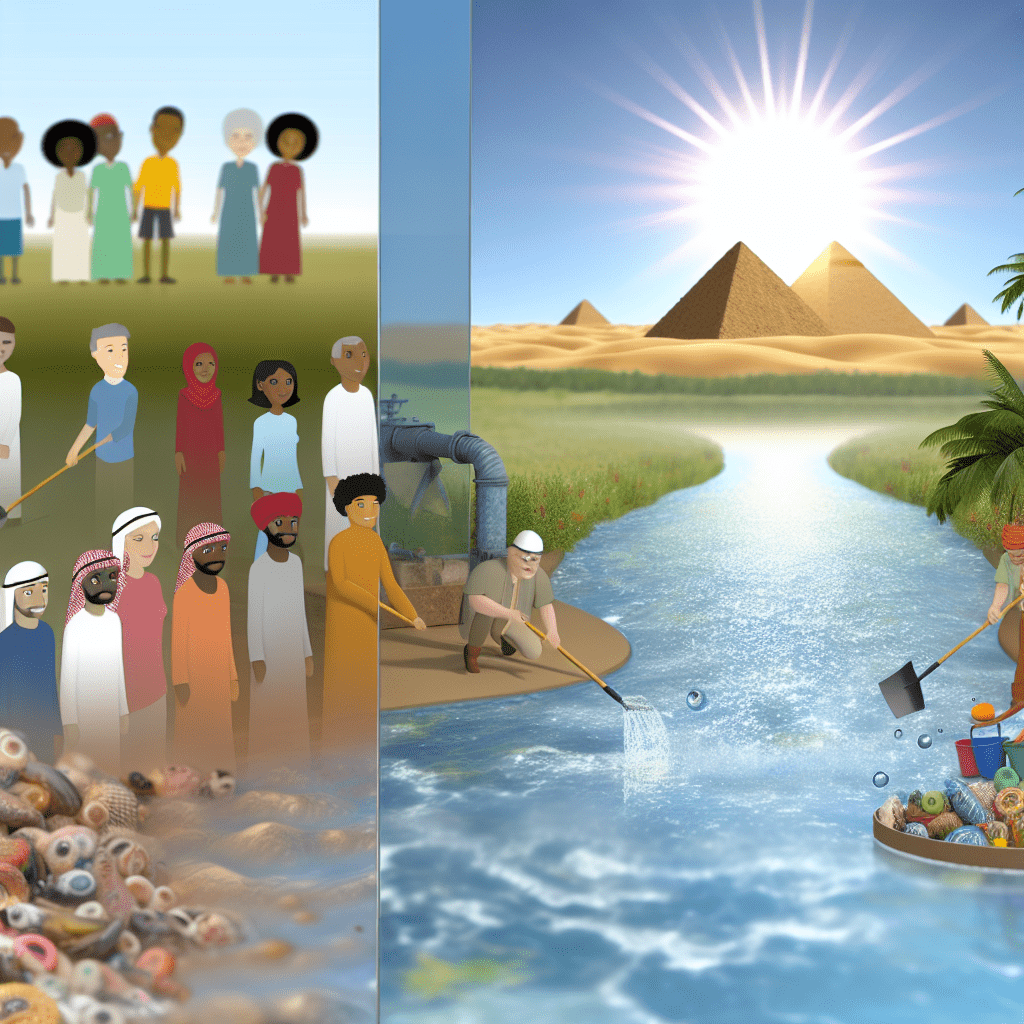”
Egypt, a land revered for its majestic Nile River, faces considerable water quality issues. This article will unravel these challenges, pinpoint their causes, and propose potential prospects for cleaner, healthier water.
The most pressing water quality problems in Egypt arise from industrial contamination, agricultural pollution, deficient sewage treatment, and the harsh impacts of climate change.
Major water pollutants in Egypt include heavy metals, agricultural pesticides, harmful algal blooms generated by excessive nutrients and untreated sewage. These pollutants not only pose serious health risks, disrupt river ecosystems but also place enormous pressure on the country’s water treatment systems.
Despite existing water management policies such as the National Water Resources Plan, the water quality issues in Egypt persist, indicating the need for a more inclusive and sustainable approach.
Improving water quality in Egypt calls for stricter regulations on industrial and agricultural pollutants, significant investment in modern sewage treatment infrastructure, sustainable farming practices, and climate-adaptable water management strategies.
Public participation along with community education are crucial factors for addressing these problems. Campaigns on water conservation, pollution prevention, and the importance of healthy river ecosystems can instigate necessary societal changes.
In conclusion, although the journey towards improved water quality in Egypt may seem arduous, it is far from insurmountable. With a combination of comprehensive policy enforcement, technological innovation, and proactive public involvement, Egypt can sail towards a future of clean, safe waters.
By FountainGO!

